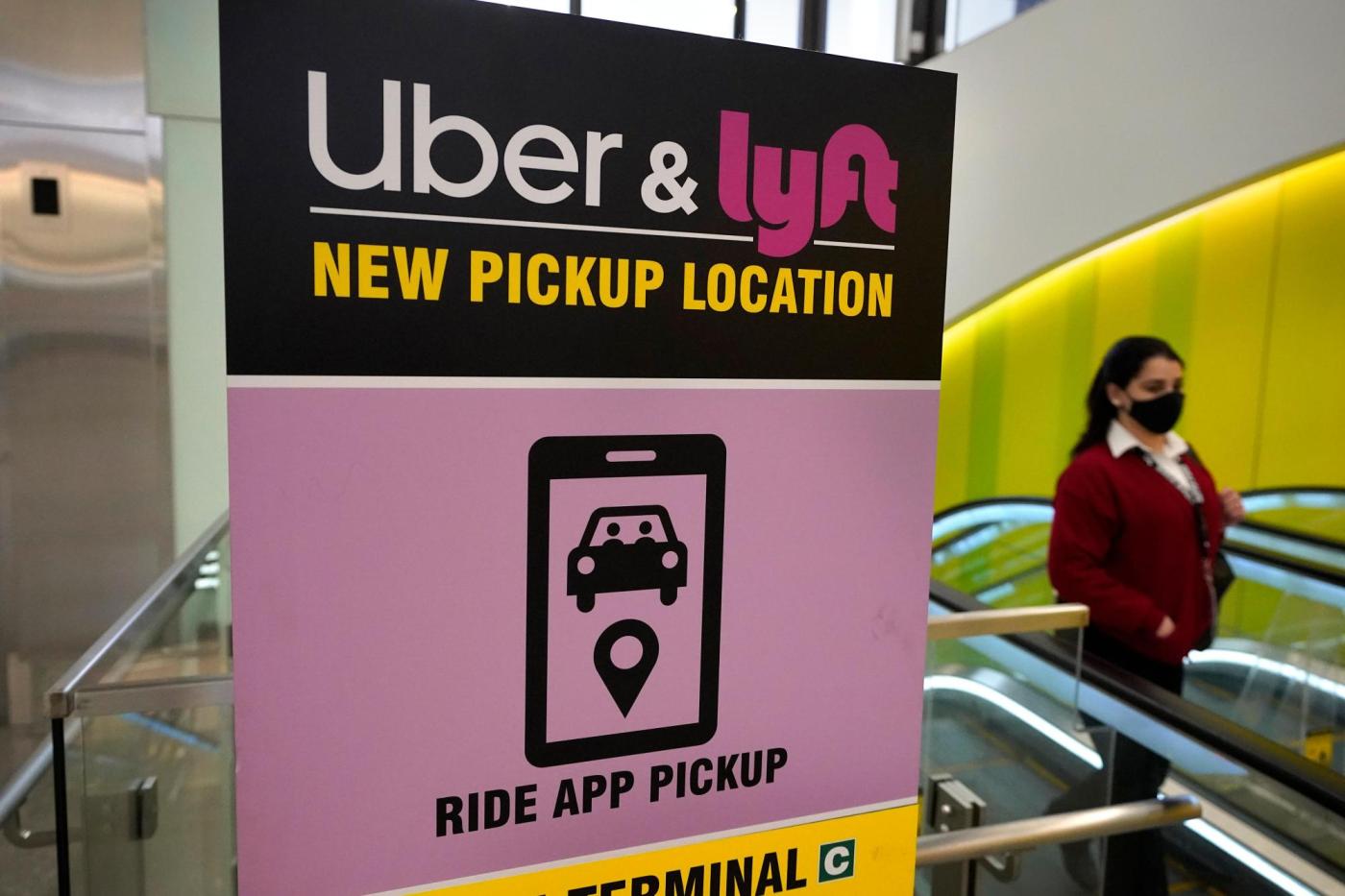
Edwards: Competition, fairness at core of rideshare rift
At the end of April, the Office of the Auditor Diana Dizoglio released an impact study on the business model of Uber and Lyft. Specifically, the study analyzed how the rideshare companies in classifying their drivers as “independent contractors” paid nothing into unemployment, workers compensation or paid family medical leave, despite making $1.4 billion. How much would they have paid if they had classified their drivers as employees? Approximately, $47 million. That’s just for 2023.
The corporations and Boston Herald columnist Joe Battenfeld’s response? Shoot the messenger. I know, I laughed out loud too. The retort of the corporations smelled of “mean girl” mixed with gaslighting. Battenfeld came across as paranoid, painting a picture of a union conspiracy. Together, the companies and Battenfeld attacked the accuracy and transparency of the report.
You would think the companies that are so concerned about transparency would respond with their own evidence. The state Legislature has proposed legislation, including my own bill, that would shine some light on the true numbers of drivers’ rides and make it public and accessible. This would help cities and towns to know how many rides, where people are going, and the average costs. But instead, we got petty attacks.
Please don’t be distracted. This is all an attempt to prevent us from asking some basic questions. Questions like, why as a small business owner am I paying out the nose on a quarterly basis for unemployment, workers compensation, and paid family medical leave and billionaire corporations aren’t? Why did these corporations get bailed out during the pandemic by having our government pay unemployment benefits to their workers when they didn’t pay a dime into the system? Why do these transportation network corporations think they are so darn special?
Uber certainly didn’t think it was special or above reproach when it paid $100 million to New Jersey for misclassification. Uber and Lyft didn’t they were special when they paid $328 million to New York. I didn’t think they were special when I approached the auditor and asked what if any funds they may be shorting Massachusetts misclassifying their drivers.
You know who else doesn’t think these companies are special? The Attorney General. Battenfeld forgot to mention, and Uber and Lyft would like you to forget, that the trial to determine whether these drivers are employees or independent contractors starts next week. If the companies lose, their drivers will be considered employees. The companies will end up paying hundreds of millions of dollars no matter how much they complain, and no matter what happens with their ballot initiative in the fall.
Still these companies insist that they are special, so they along with their bestie Instacart have set out on a wonderful adventure to buy the best laws money can pay for through their ballot initiative. They had the perfect narrative: we need flexibility and benefits. It was perfect until the auditor’s report came out and showed us that they been robbing the state and their ballot initiative is really just to make their theft legal and permanent.
To be fair, Uber and Lyft do pay a surcharge per ride of about 20 cents. That is split between the originating city and the state. Their besties, however, don’t pay into any of the social programs mentioned above and don’t pay a surcharge. When the state tried to increase that 20 cent fee, Uber’s head of transportation policy had a better idea for all of us and suggested “congestion pricing.” A spokesperson stated “Massachusetts won’t solve congestion or fully fund mass transit without ensuring that all users of the road pay their fair share.” Did you laugh again? Uber wants all of us to pay our fair share. Needless to say it’s time that we reassessed that 20 cent charge and definitely make sure that delivery network companies get their own fee.
What is interesting the more the companies attack the more they expose how much we need to regulate this behemoth. My bill S. 627/H.1158 does just that. It assures that these companies will pay their fair share. It forces the companies to compete competitively with other transportation companies, it demands that workers and passengers be protected and finally it allows the drivers to form a union. It does all of this while maintaining employee status and using existing laws we have.
Uber and Lyft don’t want that. They came to Massachusetts and sought to be the exception to all the rules. They can attack the report all they want but it doesn’t take a genius to know that making $1.4 billion and paying nothing is not fair. It’s not fair competition to other businesses that follow the rules and it’s not fair to those of us that end up paying the bill if or when the drivers need MassHealth, SNAP benefits or unemployment benefits during the pandemic. Uber and Lyft couldn’t have been a bigger example of corporate welfare. At least we found a form of welfare Battenfeld likes.
I hope you enjoy the continued wails and gnashing of teeth. I’ll continue to be proud to expose the corporations for their theft and greed. As we move forward, I urge my fellow legislators, the public, and all stakeholders involved to look beyond the smokescreen of political accusations and focus on the core issue: ensuring fairness, transparency, and justice for all workers in our state. It’s time we prioritize people over profit and ensure that every worker in Massachusetts is treated with the dignity and respect they deserve.
State Senator Lydia Edwards represents the 3rd Suffolk district


